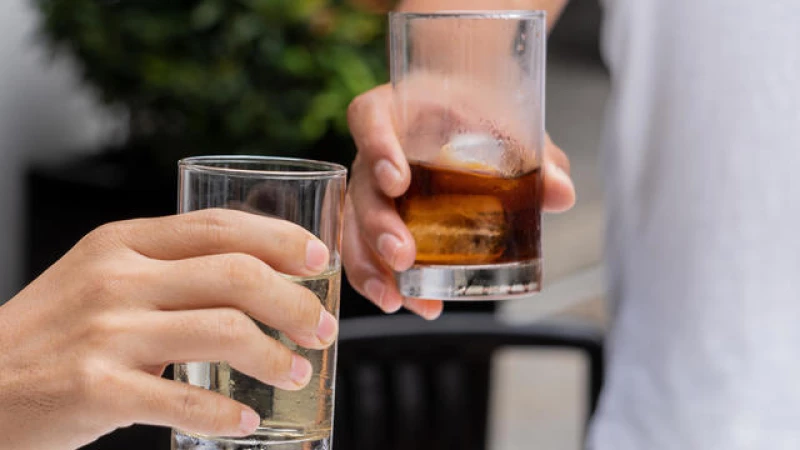Despite sober-curious trends hitting the mainstream, and avoiding alcohol becoming more socially acceptable, those choosing not to drink this holiday season are often still hit with a potentially triggering question: "Why aren't you drinking?"
While some people may be OK with questions about their reasons for abstaining, experts say it's best to simply respect people's boundaries around alcohol.
"These questions might feel invasive and contribute to their feeling uncomfortable, abnormal or outcast," says Vanessa Kennedy, director of psychology at Driftwood Recovery. "If they are newly sober and in a vulnerable emotional state, these questions can contribute to insecurity regarding their choices."
Robert Vincent, a public health analyst with the Substance Abuse and Mental Health Services Administration, says asking friends or family members to explain their choice to turn down a drink or justify their behavior may be viewed as an imposition.
"Holidays can be stressful; honor your family and friends' personal privacy," he suggests.
There are also so many reasons why someone might not be drinking, says Dr. George F. Koob, director of the National Institute on Alcohol Abuse and Alcoholism, part of the National Institutes of Health. These may include:
- Driving later, or having an early morning the next day
- Re-evaluating their relationship with alcohol
- Taking a break from alcohol
- Being in recovery from alcohol use disorder
- Being pregnant or trying to conceive
- Taking certain medications that interact negatively with alcohol
- Having a medical condition that can be made worse by alcohol
"In any case, the specific reason is likely to be personal and sensitive, so it is important to respect the person's boundaries and be careful about being too intrusive," he says.
Kennedy adds that a person may also be prioritizing their health or simply want to be fully present with loved ones around the holidays.
"Whether the individual has a problematic relationship with alcohol or not, they may choose not to drink because they are re-evaluating the impact it has on their life," Kennedy says.
How to support friends or family not drinking alcohol this holiday
If someone does say they aren't drinking, or chooses to share why, it's important to respect their response.
"Respond supportively in a way that indicates your approval of their personal choices," Koob says. "Don't respond in a way that indicates alcohol is required to celebrate or have fun."
Another way to show support is offering a variety of alcohol-free drinks like water, juices and sparkling sodas, he suggests, or to put more emphasis on sharing food options than drinks.
"You may even ask them what they need from you to support them in this choice," Kennedy adds.
What not to do? Pressure someone to drink, no matter their reason for abstaining.
While the intention may be to encourage them to "unwind or join in the fun," it is important to consider the potential harm that can come from pressuring someone to drink, especially if they have a history of alcohol misuse or are in recovery. Encouraging someone to drink may put them at medical risk and undermine their efforts to maintain their sobriety.
Instead of pressuring someone to drink, it is more helpful to be supportive, respectful, and compassionate. It is not necessary to know someone's health status in order to treat them with empathy and understanding. If you see someone else applying pressure, try diffusing the situation by offering them an alternative activity or inviting them to join you elsewhere. Remember that abstaining from alcohol is a personal choice and does not require justification.
If you or a loved one is struggling with alcohol misuse, help is available through the Substance Abuse and Mental Health Services Administration Helpline at 1-800-662-HELP.







